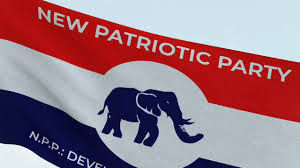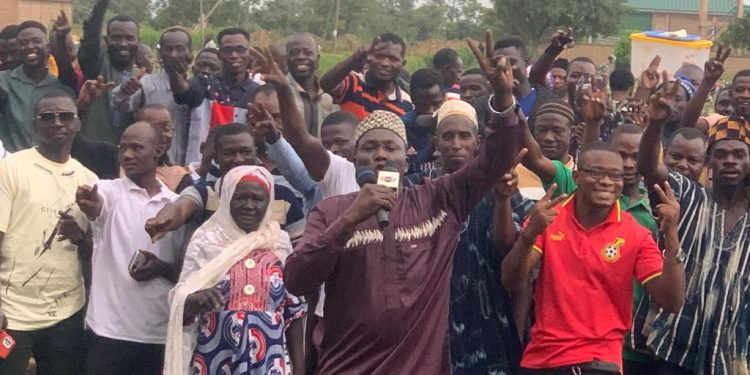Who Will Lead the NPP in the Upper West Region? Contenders Emerge Amid Post-Election Challenges
- Info Radio Reports

- Jul 15, 2025
- 3 min read

The New Patriotic Party (NPP) in the Upper West Region is at a critical crossroads following its disappointing performance in the 2024 general elections. The party’s electoral setback, marked by the loss of two parliamentary seats and a decline in presidential votes, has ignited intense discussions within the party ranks about leadership and the way forward.
Since the demise of former NPP regional chairman Mr. S.B. Kangberee, Alhaji Abdul Aziz Rahaman, popularly known as "Alhaji White," who was the first vice chairman and now the substantive regional chairman, has been steering the party. His leadership, however, is now under scrutiny as the party prepares for a major internal election.

Sources close to the party’s leadership reveal that Alhaji Abdul Aziz Rahaman has publicly expressed his interest in contesting the regional chairmanship position. Known for his business acumen and grassroots mobilization skills, Rahaman is seen by some supporters as a unifying figure capable of restoring the party’s fortunes.
The race to succeed or retain leadership is shaping up to be highly competitive. Among those showing interest are several prominent figures:

Alhaji Issahku Tahiru Moomin, a former Wa Central NPP parliamentary candidate and the ex-Municipal Chief Executive for Wa, has thrown his hat into the ring. His previous experience in governance and his strong ties to the party’s grassroots make him a formidable contender.

Alhaji Toyiba Mahama, affectionately known as "Zamzam," has been a perennial candidate for the regional chairmanship, contesting three times previously. A seasoned businessman, Mahama’s consistent interest indicates his ambition to lead the party once again .

Mr. Alaska Kanton, the current Upper West Regional Organizer, has also expressed interest in vying for the chairmanship when nominations open. His organizational skills and familiarity with the party’s machinery place him as a serious contender.
According to Info Radio sources , these four candidates are actively engaging with grassroots members, party elders, and key stakeholders, seeking their support and blessings for the upcoming contest.
The region’s electoral results have cast a shadow over the party’s unity and prospects. In 2024, the NPP's presidential candidate, Dr. Mahamudu Bawumia, garnered 89,908 votes in the region, a decline from Nana Akufo-Addo’s 105,947 votes in 2020. The party also lost three (3) parliamentary seats, fueling concerns about internal divisions and leadership shortcomings.
Many party members and residents attribute the poor outcome to what they describe as the self-centeredness and neglect of the welfare of constituency executives and grassroots members by some some party officials and appointees. This internal discord, they say, has led to a "general apathy" within the party’s ranks, which was reflected in the electoral results.
As the NPP prepares for internal elections , there is a palpable desire among party members to select leaders who can inspire unity, hope, and renewal. Several stakeholders have emphasized the need for leaders who can heal internal wounds and reconnect with the grassroots.
Speaking to Info Radio, a senior party member noted, “We need leaders who can bring us together, who understand the pains of our members, and who can rally the party for future victories. The 2024 results have shown that we must change course.”
The upcoming NPP leadership race in the Upper West Region promises to be pivotal for the party’s future. With multiple candidates vying for the top position and a history of internal divisions, the process will require careful consideration and consensus-building.
Party insiders affirm that the selection of a leader capable of uniting the party and revitalizing its electoral prospects remains the top priority. As the region prepares for the internal elections, all eyes will be on how the NPP in the Upper West navigates this critical period of renewal and reconciliation.








Comments